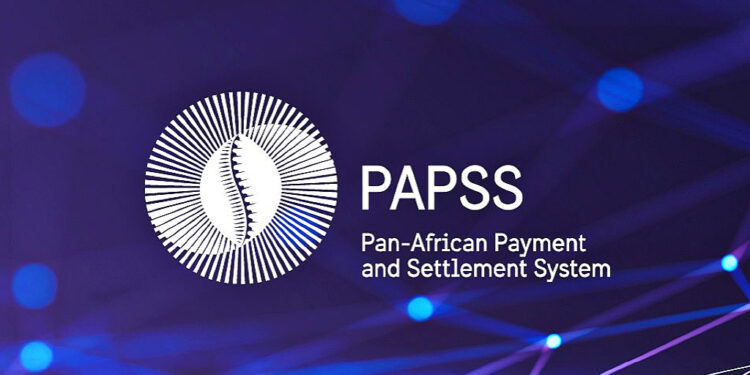Opinion
Africa’s Payment Revolution: PAPSS network expands, powering continental trade dream

The Pan-African Payment and Settlement System (PAPSS) is rapidly emerging as the central nervous system for the African Continental Free Trade Area (AfCFTA), marking a quiet revolution in how the continent trades with itself.
With a clear mandate to power intra-African trade, the platform is showing remarkable growth, built on a foundation of immense political will.
PAPSS has received the highest possible endorsement from the African Union Heads of State and the continent’s Central Bank Governors, who have adopted it as the official payment and settlement platform for implementing the AfCFTA. This unified backing is crucial, as the system is regulated by the PAPSS Governing Council (PGC), a body composed of the Central Bank Governors from participating countries.
This “College of Governors” provides robust oversight, ensuring the platform’s stability, security, and alignment with national monetary policies.
What began as a successful pilot in the West African Monetary Zone (WAMZ) has scaled at an impressive pace. As of 2025, the PAPSS network has expanded its footprint across four regions, connecting 19 countries, with over 150 commercial banks and 14 payment switches. This now includes a significant presence in North Africa, with countries like Morocco, Algeria, Egypt, and Tunisia on board, alongside growing corridors in East and Southern Africa.
This year, 2025, has been a critical turning point for Africa’s payment sovereignty with the launch of two game-changing products. The “PAPSSCARD,” Africa’s first continental card scheme, was launched in June to challenge the dominance of foreign card networks. Hailed as a “bold move toward financial sovereignty,” the card aims to keep processing, fees, and data within Africa. This was followed in July by the launch of the “PAPSS African Currency Marketplace” (PACM), a platform for the direct, peer-to-peer exchange of African currencies, which one early corporate adopter called “a dream come true.”
The launch of these products is not just a technical upgrade; it’s a direct solution to one of Africa’s most persistent economic headaches. According to a recent article from Ecofin Agency citing IATA data, African countries hold the vast majority of the world’s blocked airline revenues, totaling over $846 million. This “trapped capital” crisis, which cripples international airlines, is precisely what the PAPSS African Currency Marketplace was designed to solve by creating a formal, transparent venue for converting local revenues.
While regional systems like the East African Payment System (EAPS) and COMESA’s Regional Payment and Settlement System (REPSS) have existed for years, their adoption has often struggled, limited by fragmented liquidity and a lack of interoperability. This is where PAPSS provides a critical solution. By leveraging PAPSS, these regional systems can be connected, allowing it to act as a “network of networks” that provides the final, continental net settlement layer they previously lacked.
The future, experts say, lies in the collaboration between these regional systems and the continental PAPSS platform. This synergy is the key to creating a truly unified African payment market, moving from isolated pockets of trade to a seamless flow of capital. The economic impact is staggering: PAPSS is forecast to save the continent more than $5 billion USD annually in payment transaction costs, money that was previously lost to fees for currency conversions and routing payments through offshore correspondent banks.
The structure of PAPSS aligns with global best practices. A recent report by the Bank for International Settlements (BIS) and the Committee on Payments and Market Infrastructures (CPMI), titled “Exploring multilateral platforms for cross-border payments,” highlighted that such platforms are essential for reducing frictions. The report stressed that their success depends on strong support from regulators and active participation from players, two conditions PAPSS has already met.
The initiative has been championed by Professor Benedict Oramah, President of the African Export-Import Bank (Afreximbank), who has described PAPSS as a “transformational” tool for achieving African financial sovereignty. His vision has been to create a system that allows an African to buy goods from another African country using their local currency. As leadership at Afreximbank transitions, it will be critical for the incoming president to continue to seed and nurture this initiative to fully realize its continental ambition.
Ultimately, PAPSS is the engine driving a new era of interoperability. It is not just connecting banks; it is creating a framework to link different regions, national switches, and the next generation of financial services, including mobile money operators and wallets. By doing so, PAPSS is unlocking the continental market, making the vast promise of the AfCFTA a tangible reality for businesses of all sizes.
By Ade Adefeko, Director Corporate and Regulatory Affairs at Olam Agri, ex-Officio NACCIMA, and Honorary Consul of Botswana in Lagos.
-

 Politics19 hours ago
Politics19 hours ago2027: Real-time results transmission achievable, say telcos
-

 Business23 hours ago
Business23 hours agoNUPENG asks Tinubu to clarify new executive order on oil and gas industry
-

 News24 hours ago
News24 hours agoMonthly environmental sanitation yet to resume – Lagos
-

 Business23 hours ago
Business23 hours agoDangote Refinery targets depot owners, major marketers in new marketing model
-

 News22 hours ago
News22 hours agoActivist kicks as Plateau sponsors pilgrims with N7.48b
-

 World News18 hours ago
World News18 hours agoNemesio Oseguera, the brutal Mexican drug lord known as ‘El Mencho’
-

 World News24 hours ago
World News24 hours agoViolence erupts across Mexico as army kills drug cartel leader
-

 News15 hours ago
News15 hours agoWike Nullifies Over 400 Land Titles In Abuja


















